Cattle Barons: A Business Built On Trust
By Debra Davis
Five cattlemen, who are fierce competitors and friends, collectively claim over 250 years of experience in buying and selling cattle throughout the Southeast. Each cattle baron lives within minutes of Montgomery but has managed to individually brand his business based on the belief that trust matters most.
Lowell Custard, David Garrett, Ned Lee, Dean Parkman and Waylon Price are legends among cattlemen throughout Alabama and across the country. Stockyard owners speak their names with reverence, and feedlot owners thousands of miles away call them friends.
They have no doubt brokered the sale of millions of cows during their careers as order buyers who purchase cattle on behalf of customers wanting groups of similar animals.
Years of late nights, early mornings, sorrows and celebrations carved distinct but similar paths for each. Although their businesses remain separate and successful, time has changed their profession in many ways. These esteemed men shared their philosophy on work, wisdom and weathering the demanding occupation they love.
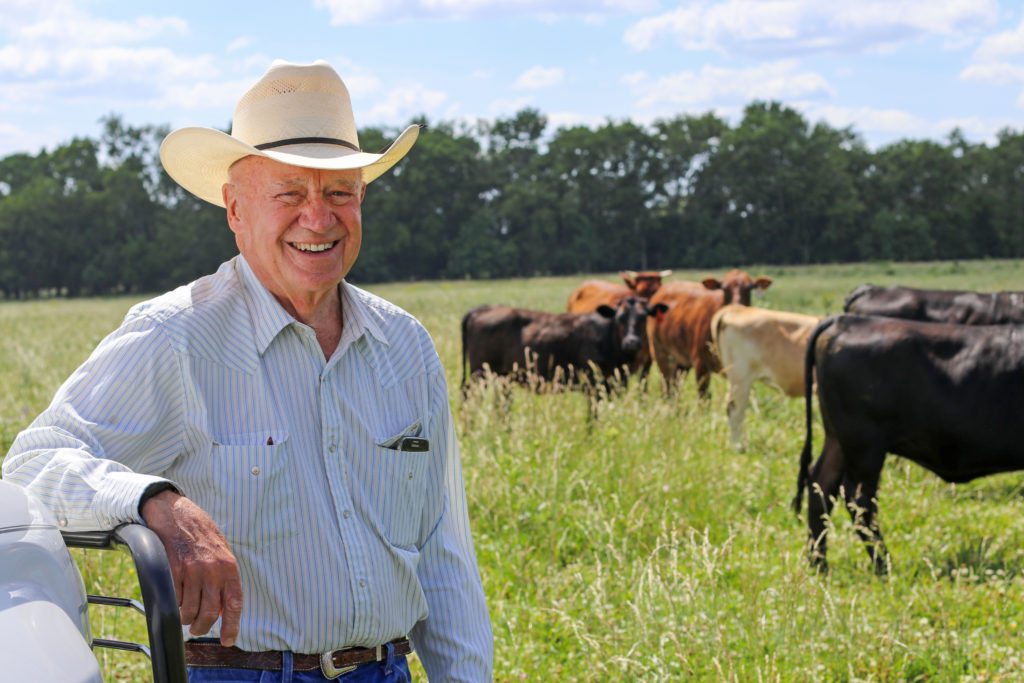
Lowell Custard
Lowell Custard is known for telling tall tales and buying good cattle. A spry 82, he doesn’t buy as many cows as when he started almost 60 years ago.
“When my wife Jackie and I graduated from Colorado State in 1961, I took a job with Swift & Co., and we moved to Kansas City where I started buying cattle,” said the native of Pueblo, Colorado. “Swift transferred me to Montgomery where we stayed for a couple years before they transferred me to Iowa. I had all the cold I could stand, and we moved back here in 1973.”
After working for other cattle buyers, Custard started his own business.
“I didn’t start my own operation by choice; it was really out of necessity,” he said. “In 1973 and 1974, the U.S. cattle business almost went bust. It was hard to make it, but we stuck it out.
“There were a lot more cattle sold back then. I can remember there being a sale five — sometimes six — days a week. There are fewer cattle now, but they are better and bigger. We’ve increased the pounds of beef through better management and genetics.”
Most cattle 50 years ago were little Herefords before trends turned to Brahmans, Charolais, Angus and SimAngus. There are more breed varieties now, and each offers something different, he added. Many farms have been replaced with subdivisions, especially in areas near Pike Road where the Custards raised their four children. Jay raises cattle with his dad, and Sean is a large-animal veterinarian based in east Montgomery County. Daughter Lea Rae and her family live in Madison, while daughter Jodie and her husband live at Lake Martin.
Despite the challenges in an often volatile industry, Custard said he wouldn’t change jobs with anyone.
“I’ve had a great career and dealt with some of the best people you’ll ever want to meet,” he said with a smile. “I’ve slowed down a lot, but a good day is getting some orders, buying what a customer wants and getting their cattle shipped out.”
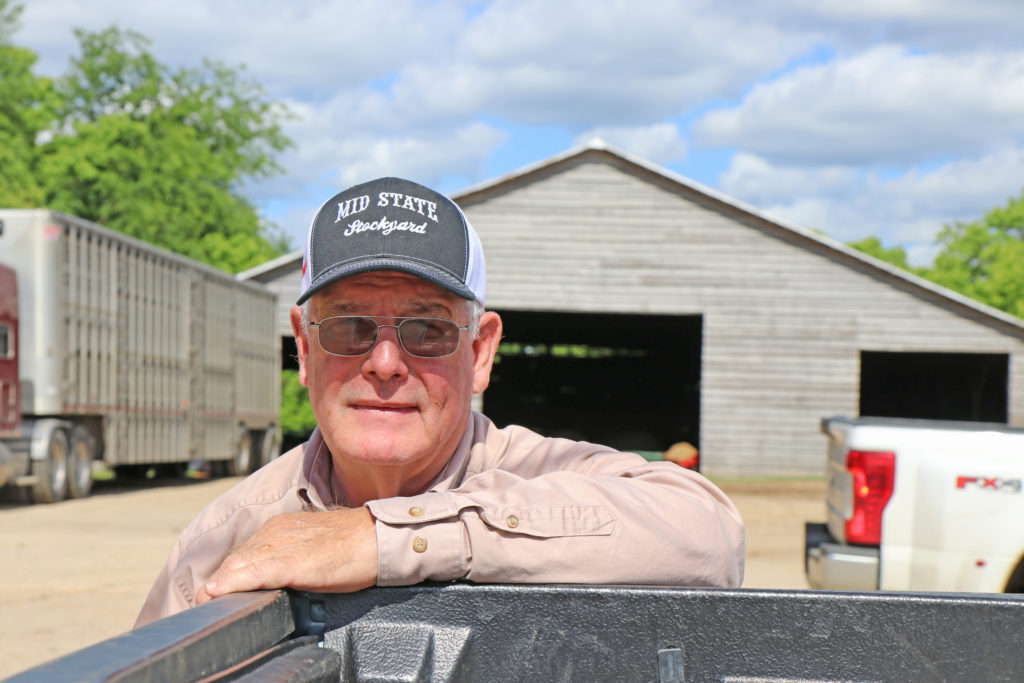
David Garrett
Trust and an eye for good cattle have been the backbone of David Garrett’s business since he was a strapping young man on the family’s farm in rural Montgomery County. At 17, he began working at the former Hooper Stockyard, riding a horse and sorting cattle in the sale barn.
From there, he worked with Harold Crawford, eventually owning a share of Crawford’s order buying business and purchasing cattle for customers. Following Crawford’s death in 1974, Garrett partnered with the McLane family from Missouri to form McLane-Garrett Cattle Co. He eventually became its sole owner.
Garrett’s customer relationships span decades, an accomplishment not often seen in other types of businesses.
“We have steady customers who need a constant supply of cattle,” said Garrett, 70. “I still work three sales a week, and we have helpers who buy for us at 25 or 30 sales a week across Alabama and Georgia, plus a few auctions in Mississippi and Florida.”
Purchased cattle are trucked to McLane-Garrett’s barn on the Mobile Highway in west Montgomery where they are matched with similar cattle to fill orders. Within hours, those cattle are headed to ranches or feed yards in Texas, Oklahoma, Colorado, New Mexico or Kansas. Some end up as far away as Nebraska or Iowa.
“The entire deal is based on trust and always has been,” Garrett said. “We trust our customers to pay us, and they trust us to send them the cattle they want.”
Garrett concentrates on buying cattle while his wife, Martha Jean, runs the office. Their son, Scott, handles most of the selling and shipping of cattle and is part owner of Mid-State Stockyards in Letohatchee. Their other son, Pat, is an equine veterinarian in Texas, and they rely on him as their consulting vet for cattle health.
Technology forever changed his business, Garrett said. A cellphone essentially allows him to be in two places at once, and computers provide faster calculations and accurate records.
But the heart of his business — people — are still the most important.
“I’ve been lucky to do something I like to do all my life,” Garrett said. “There’s just something about working with cattle and being outside. It’s the best job I can imagine.”
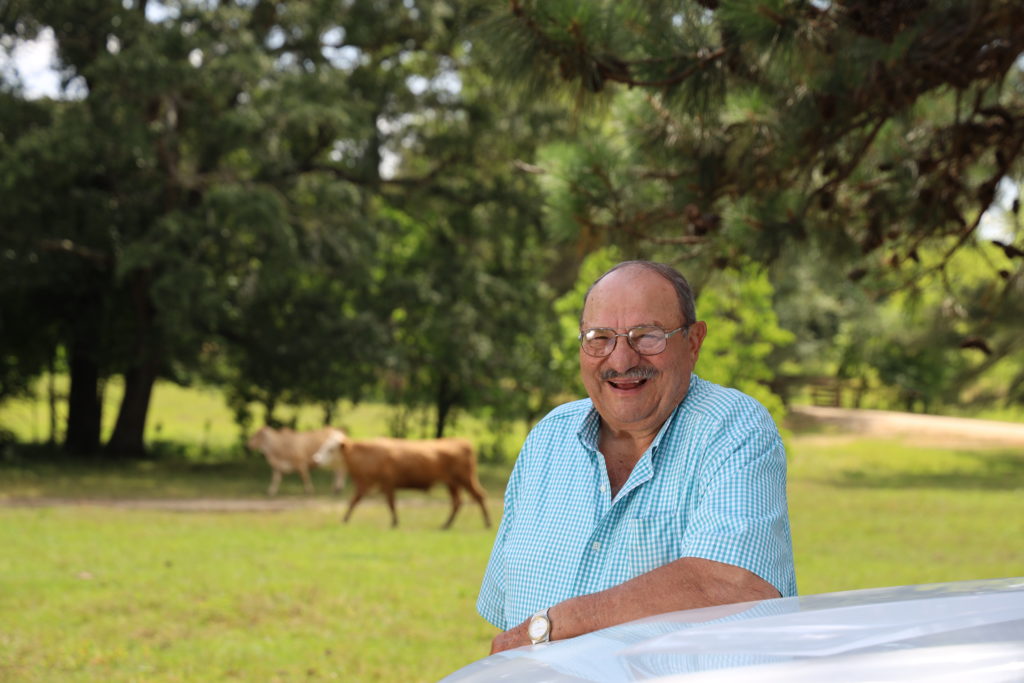
Ned Lee
Livestock auctions have fascinated Ned Lee for 86 years. Growing up in Gosport (a community between Grove Hill and Monroeville), his father let him buy goats and sheep at the local auction to keep him busy. But with every shout from the auctioneer and clap of the hammer, Lee dreamed of the day he could buy his own cattle.
“I loved an auction so much that when I was in junior high, I would leave school early on sale day just so I could be there,” said Lee, whose family raised timber, cows and hogs.
After graduating from Marion Military Institute, the self-proclaimed problem child headed to Alabama Polytechnic Institute (now Auburn University) where he planned a career in veterinary medicine. Instead, he opted for a degree in animal husbandry, graduating in 1953. After college, he spent two years on active duty in the Army, followed by 13 years in the National Guard.
“When I got back, a college friend who worked for Frosty Morn Meat Packing Co. begged me to come to Montgomery to buy hogs for that company,” Lee said.
Eventually, he bought cattle for them, too, before striking out on his own.
Lee and wife Jane Alice Davis Lee were married 46 years. Jane Alice was an icon in the Alabama Farmers Federation Women’s Leadership Division before her death in 2008.
Lee created Lee Cattle Co. specializing as a buyer for mature cows primarily used for ground beef. He attends auctions several days a week, buying for customers he’s done business with for decades. His own herd is mostly pets — an aging longhorn steer, a Scottish Highland cow and a high-headed Brahman heifer among others.
“Cattle are always going to be important in the Southeast,” Lee said. “We have a good climate, a long growing season and lots of grass. That’s an advantage over a lot of places.”
Lee has seen a lot of changes in his career and fears big corporations could change the beef business, eventually owning cattle and paying landowners to care for them. But he added that probably won’t happen in his lifetime. For now, he’ll continue heading to every auction he can.
“I couldn’t have picked a better life for myself,” Lee said. “There’s nothing I like better than waking up thinking about cows and what sale I’m going to.”
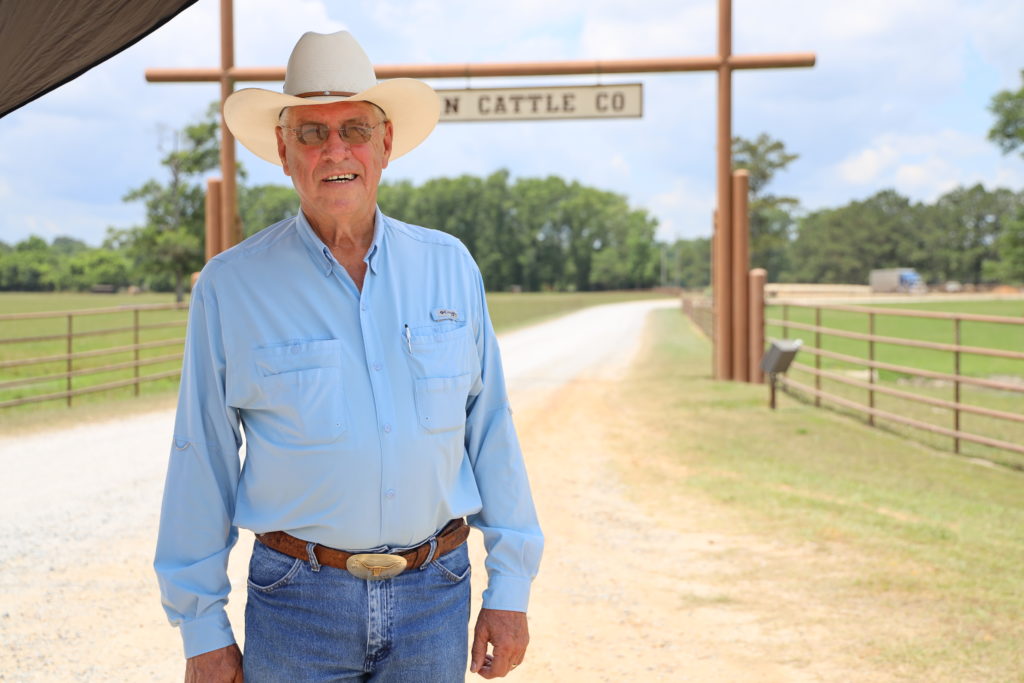
Dean Parkman
Dean Parkman left Russell County fresh out of high school to launch a cattle career in Montgomery. His business plans were put on hold during a stint in the U.S. Army and tour in Vietnam. His return home was followed by a few stops working for other ranches before forming Parkman Cattle Co. in 1971.
He and wife Brenda built a successful operation based on good cattle, customer service and trust. Their business includes sons Brendon and Brent, who also have their own herds. Parkman has a reputation as a top cattle order buyer in the Southeast.
“As long as there are small herds of cattle, there will be a need for order buyers and stockyards,” said Parkman, 76, a familiar sight at area sales with his towering frame and ever-present cowboy hat. “Some outfits raise enough calves to sell their own truckloads, but there are so many small herds in the Southeast, I don’t foresee a time when we won’t need order buyers.”
Alabama is home to about 1.3 million cows. The average herd size is 37 head, so when it’s time to sell, most owners count on stockyards.
Parkman owns several hundred cows and raises calves himself. For customers, he usually purchases calves weighing 500-700 pounds that are then grazed to 700-800 pounds before they head to a feed yard, where they are fed to 1,100 to 1,400 pounds and eventually harvested.
Surviving some of the lowest prices in history for cattle during 1973-74 makes him appreciate how far the beef industry has come, Parkman said.
Computers and cellphones significantly changed Parkman’s business (as did access to better cattle through improved genetics, herd health and grazing). But the value of a man’s word will never change, he said.
“Your reputation is everything in this business,” Parkman said. “The first load of cattle we ever shipped was to a family in Oklahoma. We still ship cattle to them. They trust you a lot if they’re thousands of miles away and you’re buying $70,000-$80,000 worth of cattle for them. Of course, you have to trust them to pay you for those calves, too.”
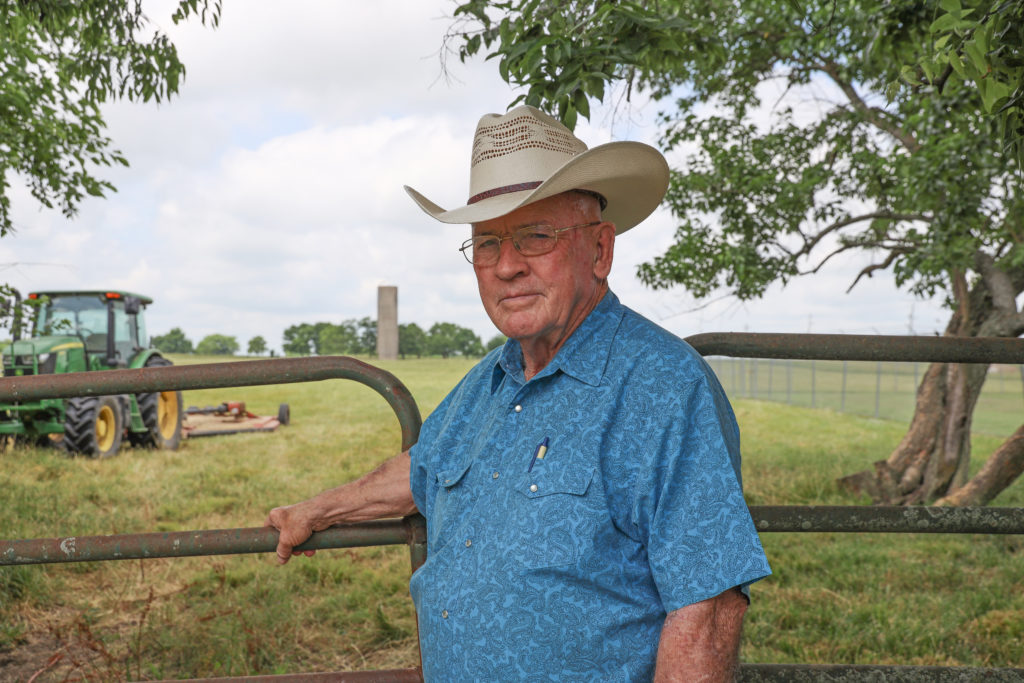
Waylon Price
Waylon Price grew up on a Montgomery County farm, and at age 15, his father helped him get a job at a local stockyard. Since then, he’s never made a dime that wasn’t connected to the cattle industry.
“After that first summer working at Capitol Stockyard, once school started back, I worked there at night till I finished school,” said Price, 80. “My senior year, I worked four nights a week until midnight and then would get up and go to school the next morning.”
After graduation, Price became an order buyer and eventually was hired by Lawrence Roll who owned L. A. Roll Cattle Co. The business relocated from the former Union Stockyard in north Montgomery to Hope Hull about 1970. The barn and office are across from Hyundai Motor Manufacturing.
After his mentor’s death, the company transitioned to Price & Roll Cattle Co., where Price is a partner with Roll’s grandson Buck.
Price continues to work with the same honesty and integrity he learned early on.
However, the business has changed dramatically, he said. A half-century ago, most cattle in Alabama were sold from Labor Day to Thanksgiving, he said. Those weeks made up three-quarters of his business. Now, cattle are sold all year, sales are smaller, and there are fewer stockyards.
“We used to have six sales a week just around Montgomery,” Price said. “It was hard on a person, and it was hard on your family. Now, there are only two sales a week here.”
Price and wife Becky raised two sons, Clay and Brian, though neither went into the cattle business.
“I thank the good Lord every night that he lets me do what I love for a living,” Price said. “More than most businesses, the order buying business operates on trust, and you have to be committed to it. David (Garrett), Dean (Parkman), Lowell (Custard), Ned (Lee) and I are committed to our businesses and families. It says something about us that we all stayed married to the wife we each started out with.”
